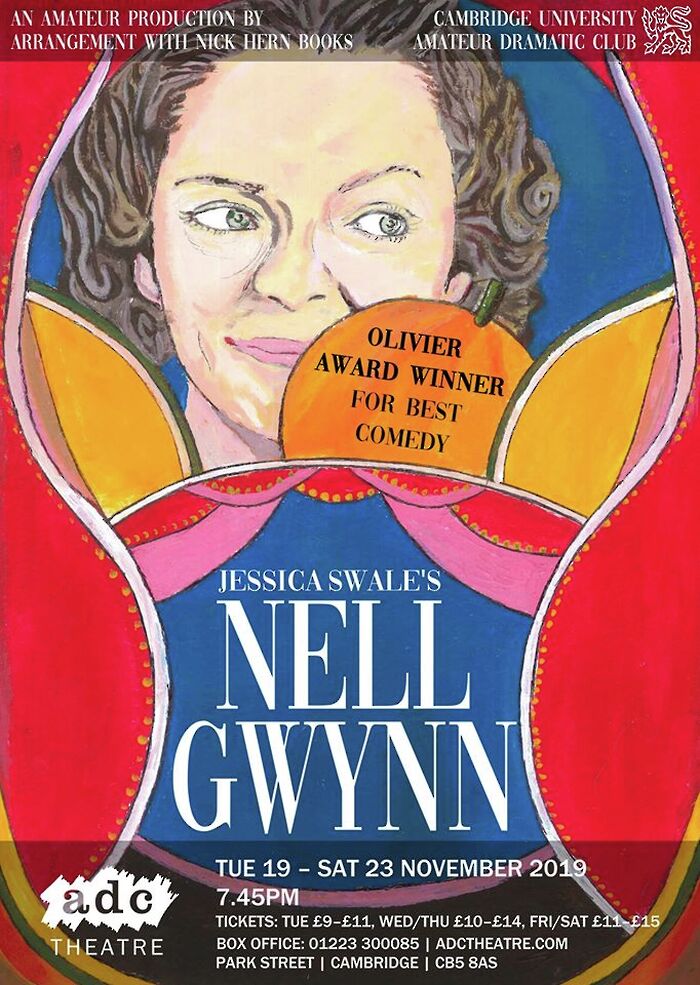Pills is an exciting experimental piece with professional quality
Alfred Leigh’s latest work is clever and disorienting, writes Iris Pearson
Downing’s Heong Gallery isn’t the obvious place to stage a play. There isn’t much scope for lighting, the actors have to weave in and out of the Barbara Hepworth sculptures, and there’s an echoing acoustic which threatens fast-paced dialogue. But Alfred Leigh’s Pills is made for this space. If you’re looking for brand-new experimental theatre in an excitingly different venue – this is the show to see.

The script is incredibly clever. This is a play which distorts memory, disorients its characters and its audience, offers multiple versions of reality which don’t quite work and which definitely don’t fit together, loops back on itself, ties itself in knots, repeats until we no longer know where we started. Leigh’s writing is subtle, never overdone, and manages confusion with a control that makes this feel like a professional piece. As the audience, we are left at the mercy of his creation. Just as we think we begin to understand what is going on, our feet our swept from under us again – and it never feels gratuitous. The confidence of Leigh’s writing makes us sure that it always makes sense in some higher logic – that there is an answer somewhere.
Leigh’s direction is intelligent and careful. He has his actors navigate their way through the sculptures so that they seem comfortably part of the show; the length of the space makes the perfect set-up for eerie confrontation, and characters are forced into corners to increase aggressive intensity. The fact that the audience can view this show from any range of angles – chairs are dotted around the space and we can move around during the show to see things more closely – demands a dynamism from the performance which Leigh’s direction achieves – yet it never loses a sense of tight control and perfect coordination. This is a performance that has been thoughtfully and ruthlessly rehearsed; every movement is deliberate.
"The confidence of Leigh’s writing makes us sure that it always makes sense in some higher logic – that there is an answer somewhere"
But none of this is just down to Leigh. The actors in Pills have an impressive control of their voices and bodies, and a confidence which crucially holds the piece together. Anna McDonald fills the play’s opening with a vivid panic: she is not afraid to make noise (and make the most of the echoes) in this space. She acts each repetition as if this really is the first time she has spoken these lines, and the progression between scenes is impressive: she uses her whole body to capture the stage-by-stage deterioration with each pill initiates.
Hashim Quraishi is eerily terrifying with his direct stare and robotically compassionate voice. Not for one moment does he relax the tight control of each step and each word, and his outbursts are captivating. Bathsheba Lockwood Brook is frighteningly unpredictable; her tone rises to a violent shout and falls to a quiet caress within the same sentence, and the audience waits with tense breath to see what she will do next. Emma-Rose Bouffler is calm yet direct, subtle yet confident: the shift in power dynamic in her scene with Lockwood Brook is unnerving in its suddenness, and her facial expressions are simple yet powerful. Hannah Arnaud enters as if to dispel the confusion of the whole play but only makes things worse, and her controlled speech lingers between kindness and manipulation.
How are we supposed to interpret Pills? Are we supposed to interpret it at all? Leigh’s new play is wonderfully unsettling and disorienting, and the experience of watching it is different for each person in the audience. The script is thrilling, the actors are confident and well-drilled. This is a clever and intriguing creation which immerses us in the complexities of memory and the difficulties of “reality”.
 News / Hundreds of Cambridge academics demand vote on fate of vet course20 February 2026
News / Hundreds of Cambridge academics demand vote on fate of vet course20 February 2026 News / Judge Business School advisor resigns over Epstein and Andrew links18 February 2026
News / Judge Business School advisor resigns over Epstein and Andrew links18 February 2026 News / Petition demands University reverse decision on vegan menu20 February 2026
News / Petition demands University reverse decision on vegan menu20 February 2026 News / CUCA members attend Reform rally in London20 February 2026
News / CUCA members attend Reform rally in London20 February 2026 News / Caius students fail to pass Pride flag proposal20 February 2026
News / Caius students fail to pass Pride flag proposal20 February 2026










